What Is VoIP?
VoIP, or Voice Over Internet Protocol, is a game changing communication technology that enables calls via an internet connection, transforming the way individuals and businesses connect and communicate.
This comprehensive guide will describe VoIP’s intricacies and explore its
- Features
- Functionalities
- Benefits
- Challenges
- Applications

VoIP Business is the #1 choice for 10,000+ reputed clients





Understanding VoIP Technology
VoIP, or Voice over Internet Protocol, is also known as IP telephony or Internet calling. This technology lets you make and receive phone calls using your internet connection rather than traditional landlines. It is not a new technology, dating back to 1970 when the US Defense Department first used it. However, recent advancements and improvements have made it a standard means of communication for businesses looking for a future-proof communication system.
VoIP offers a cost-effective and hassle-free communication solution for businesses of all types and sizes. This phone system can save you various costs associated with traditional phone systems.

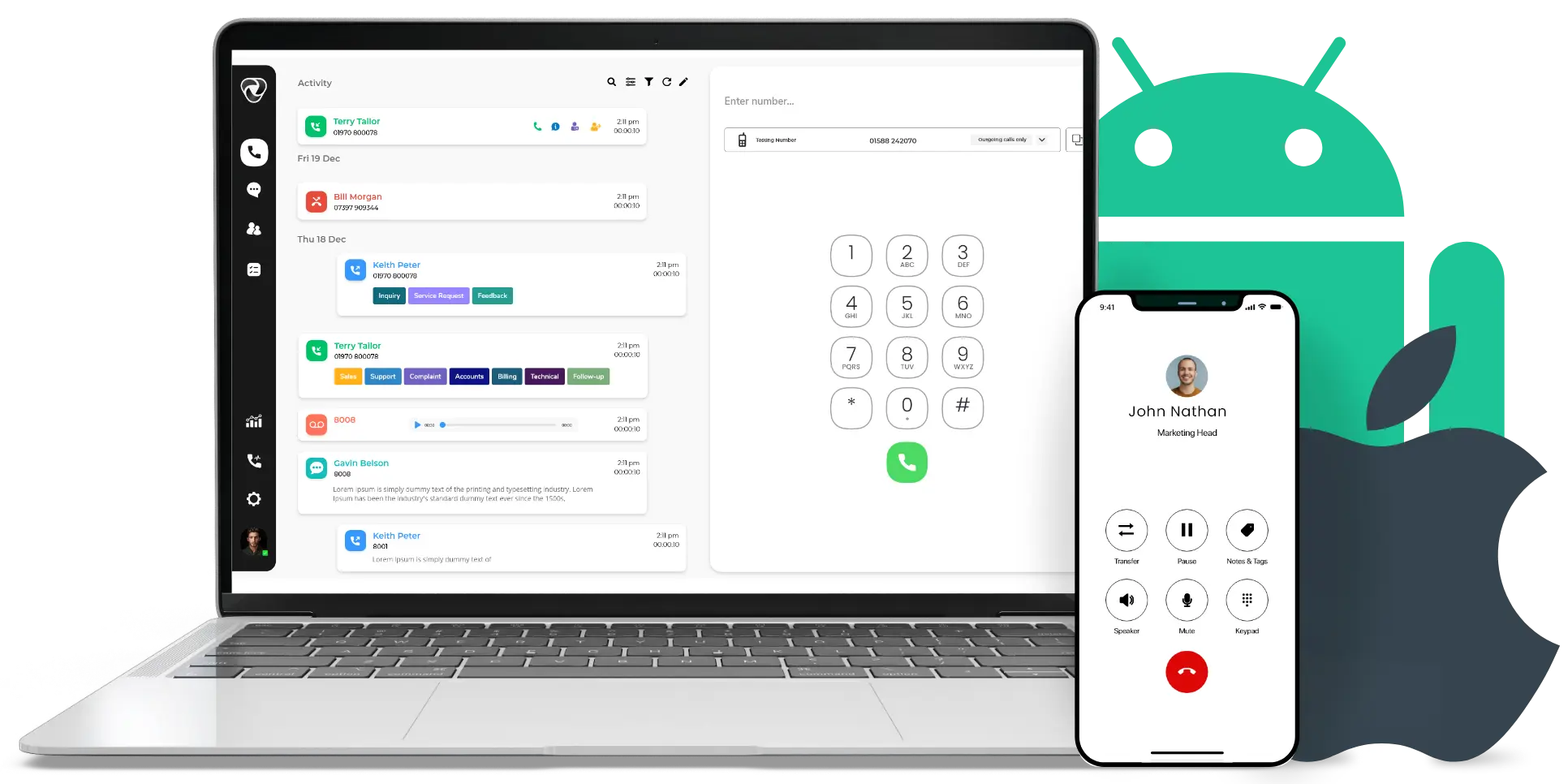
How Does VoIP Phone System Work
VoIP is an alternative to Public switched Telephone networks. Although it may sound complicated, it is not. It works by converting audio signals into digital data packets, which are transmitted over the Internet within seconds. The packets received are then received by the recipient’s device, which converts them back into audio signals, allowing for seamless voice communication. Unlike traditional telephony, VoIP uses the existing internet infrastructure, enabling users to call from various devices including
- Computers
- Smartphones
- Tablets
Specialised VoIP phones.
How To Make Calls With VoIP Phones?
Although VoIP calls are technically different from traditional phone calls, the process of making a call is not much different from that of a standard phone call. You will use a hardware or software-based IP phone to make a phone call.
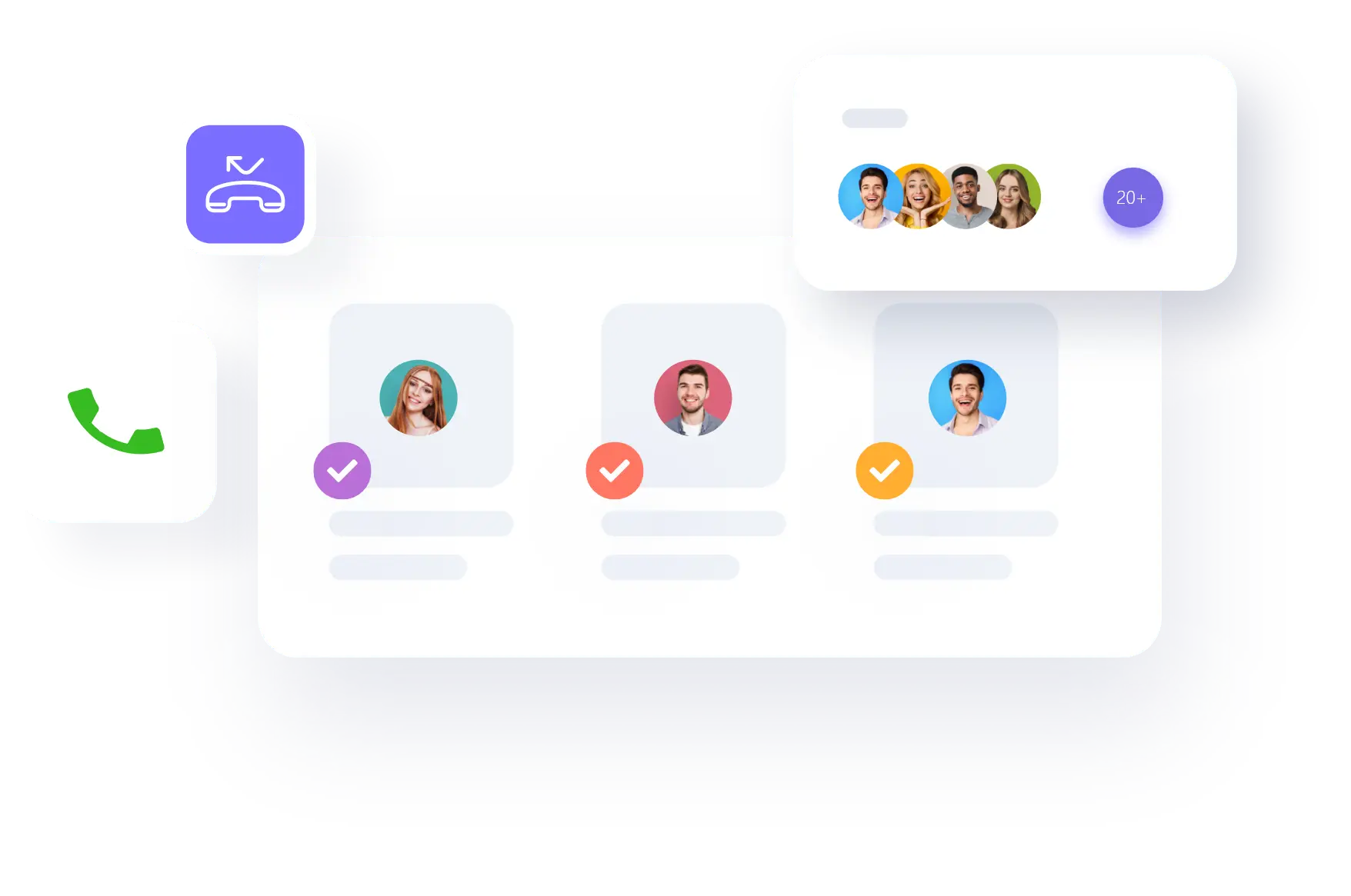
The hardware-based VoIP phone resembles its analogue counterpart in appearance and functionality. Users may find it hard to distinguish between the two at first glance. These VoIP phones offer more features than just the ability to make calls, such as voicemail, internal calling, call routing systems, auto-attendants, and call transfer capabilities. Some advanced models even come equipped with screens for video conferencing, seamlessly integrating modern communication features into a familiar device.
On the other hand, software-based VoIP phones, commonly called “softphones,” are applications or programs installed on mobile phones or computers. They serve as virtual replacements for traditional phone handsets, with interfaces that mimic their physical counterparts. Softphones can be operated via touchscreen or keyboard inputs, providing flexibility in usage. Calls made through softphones typically rely on headsets and microphones, although they can also utilize a computer’s built-in microphone and speakers for communication.
Critical Components Of VoIP Phone System
Now that you understand VoIP and its key components let’s examine it.
VoIP Phone
These are devices designed specifically for making VoIP calls. They resemble traditional telephones but are equipped with additional features tailored to VoIP technology.
VoIP Application/Software
Numerous software applications offer VoIP functionality, allowing users to call directly from their computers or smartphones. Skype, WhatsApp, and Zoom are some significant examples.
Internet Connection
A stable internet connection is essential for VoIP communication. Whether using Wi-Fi or a wired connection, sufficient bandwidth is required to ensure high-quality calls.
VoIP Service Provider
Specialized companies typically provide VoIP services that manage the infrastructure and network required for voice communication over the Internet.
Benefits Of VoIP
VoIP is an advanced communication system offering numerous benefits to individuals and businesses. Here are some of the significant benefits
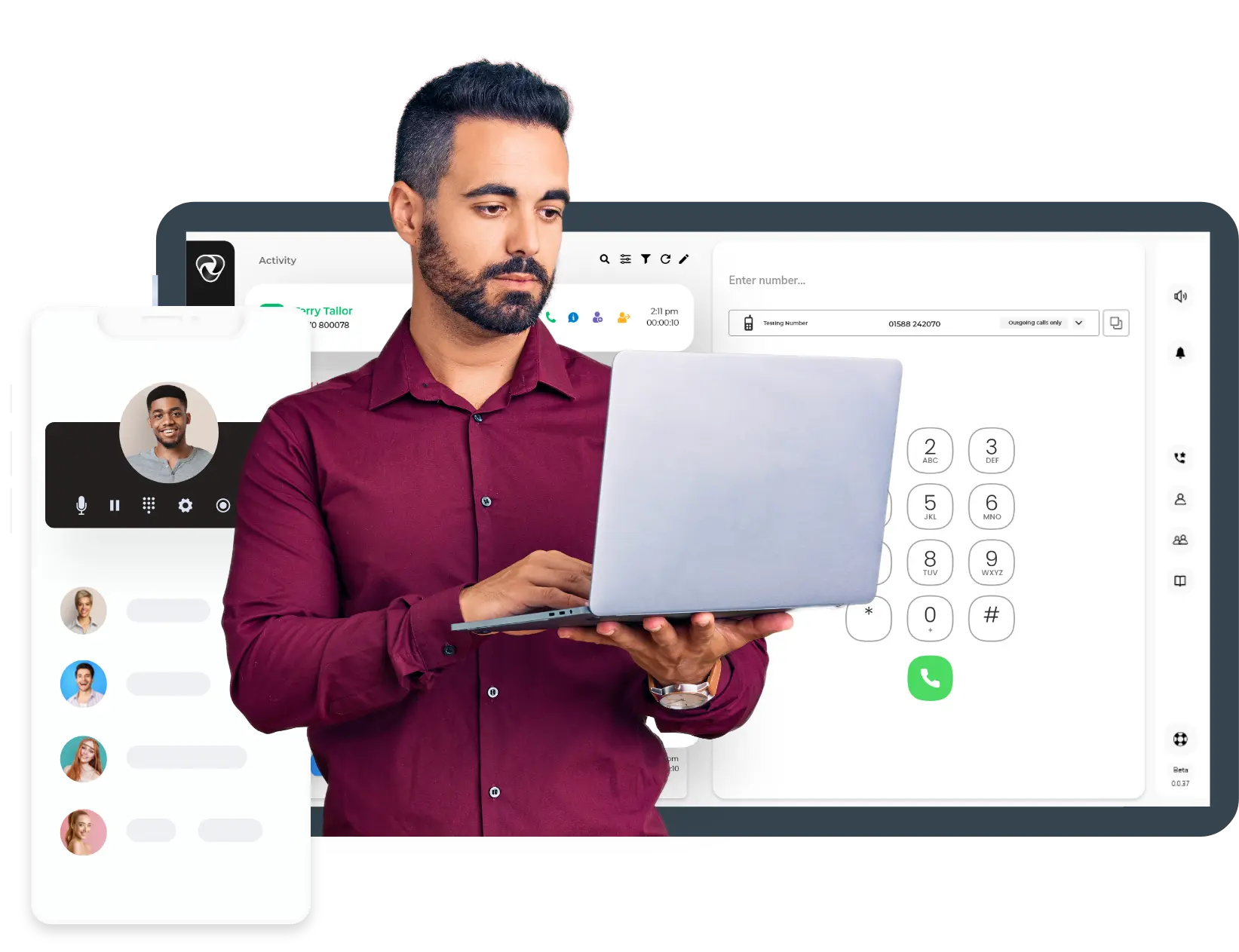
Cost Savings
The most significant benefit of VoIP is that it helps you save costs compared to traditional phone systems. There are several reasons why these advanced phone systems are cheaper than conventional landlines. The first reason is that the infrastructure used is very inexpensive, allowing small businesses to use high-quality business phone systems without going out of budget.
A traditional phone system requires expensive hardware, such as PBX hardware, extra wiring, and new phone lines. On the other hand, VoIP softphones do not require any additional infrastructure except a reliable internet connection.
In addition, VoIP call charges are often cheaper because the Internet does not care about geography. It means long-distance calls usually have the exact pricing. If all team members have VoIP numbers, the cost of international calls is almost eliminated. It makes VoIP a top choice for businesses with international clients.
VoIP phone systems also have low maintenance costs because they use less hardware and more reliable infrastructure.
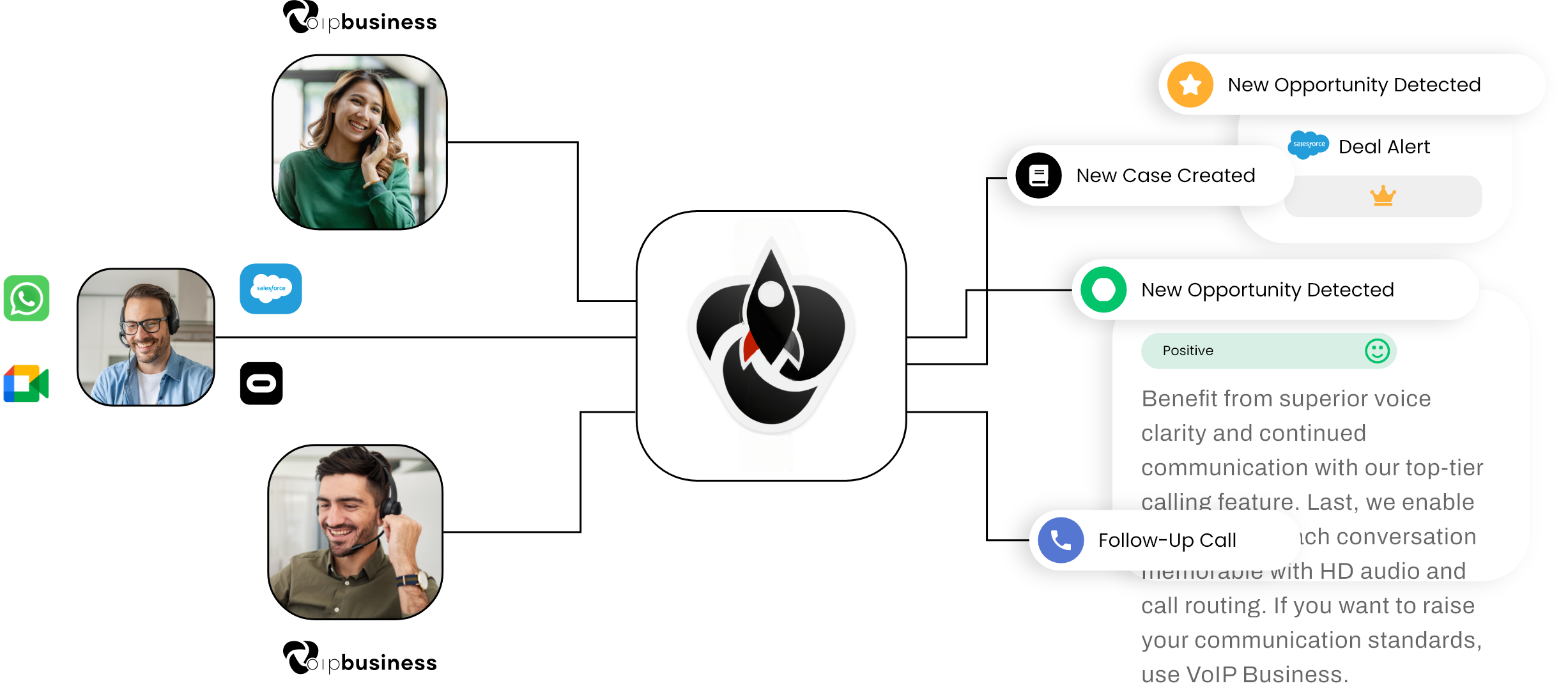
Feature Rich
VoIP stands out for its feature-rich nature, offering numerous functionalities that enhance communication in personal and business settings. Whether through traditional VoIP phones resembling desk handsets or software-based “softphones” installed on computers or mobile devices, users can access various capabilities beyond basic voice calls. VoIP systems enable voicemail management, internal calling, call routing, auto-attendants, call transfers, and even video conferencing through advanced models.
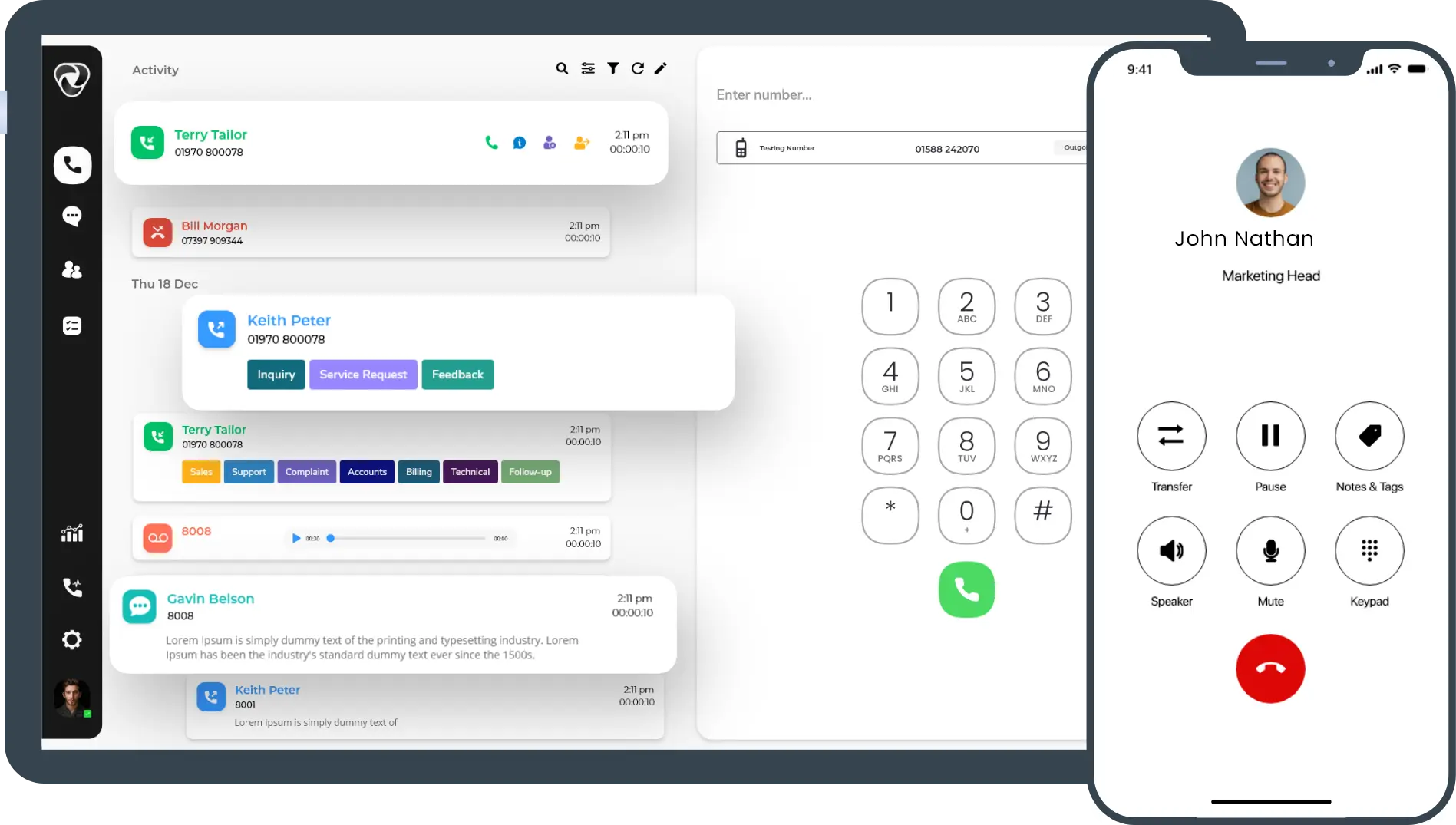
Flexibility
Cloud phone systems offer greater flexibility than conventional phone systems. VoIP provides more accessibility and agility to your business. It allows users to make and receive calls on the go. You only need a reliable internet connection and VoIP software, and you are all set to go. It helps you maintain a professional image as you can communicate seamlessly with your customers.
VoIP also makes remote work more manageable, as team members can connect anytime without hassle. VoIP is highly beneficial for businesses with multiple offices.
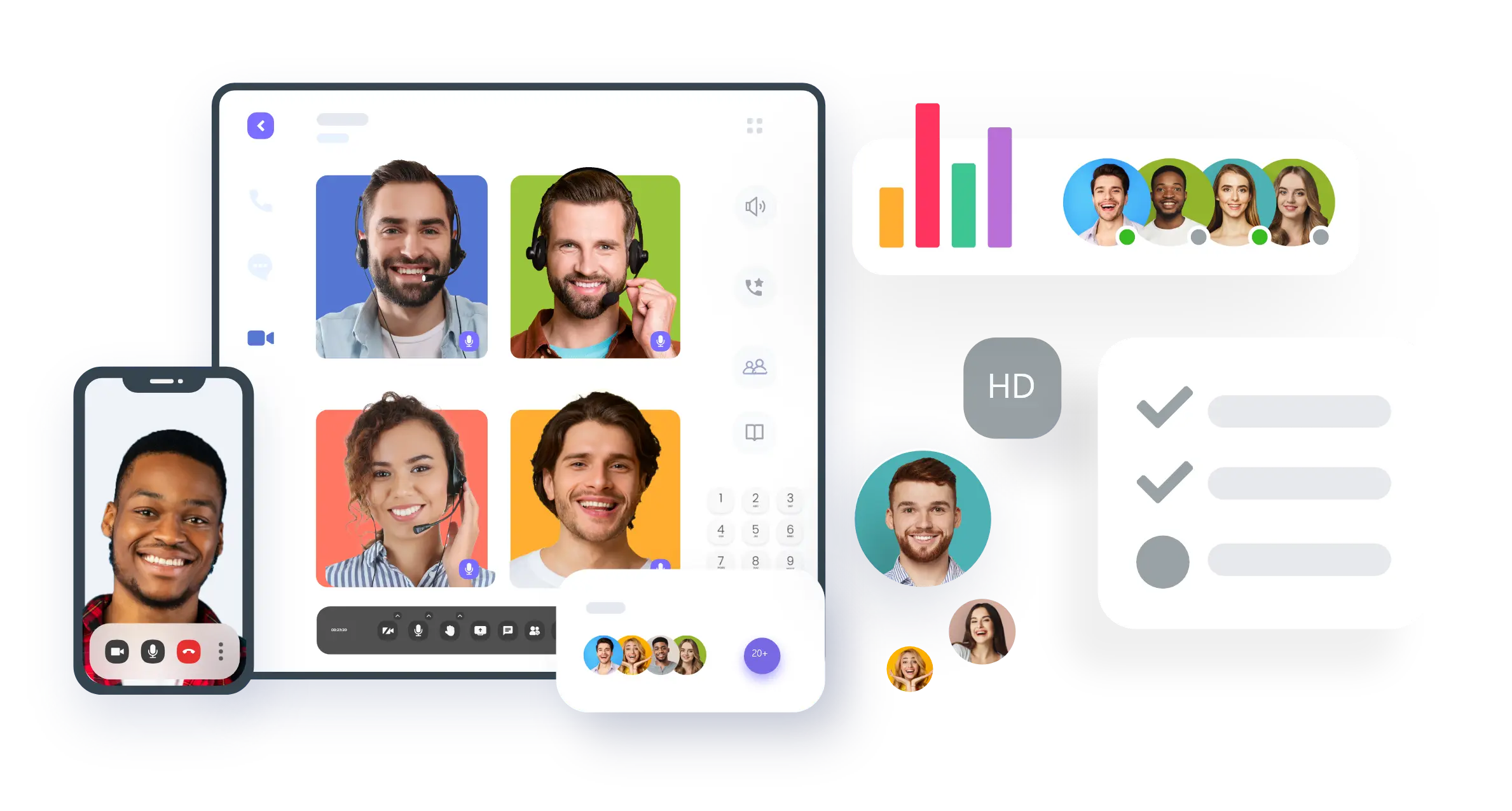
Scalability
VoIP systems can quickly scale to accommodate growing businesses without extensive infrastructure upgrades. With a traditional phone system, expanding your business phone system is challenging. It requires additional hardware and phone lines, increasing the overall cost.
On the contrary, scaling up business phone systems becomes very simple with VoIP. You can expand your system and easily include new phones and workstations.
Moreover, you can also use the bring your device policy, where employees bring their smartphones or laptops. VoIP providers also offer extra services and features for your business’s needs.
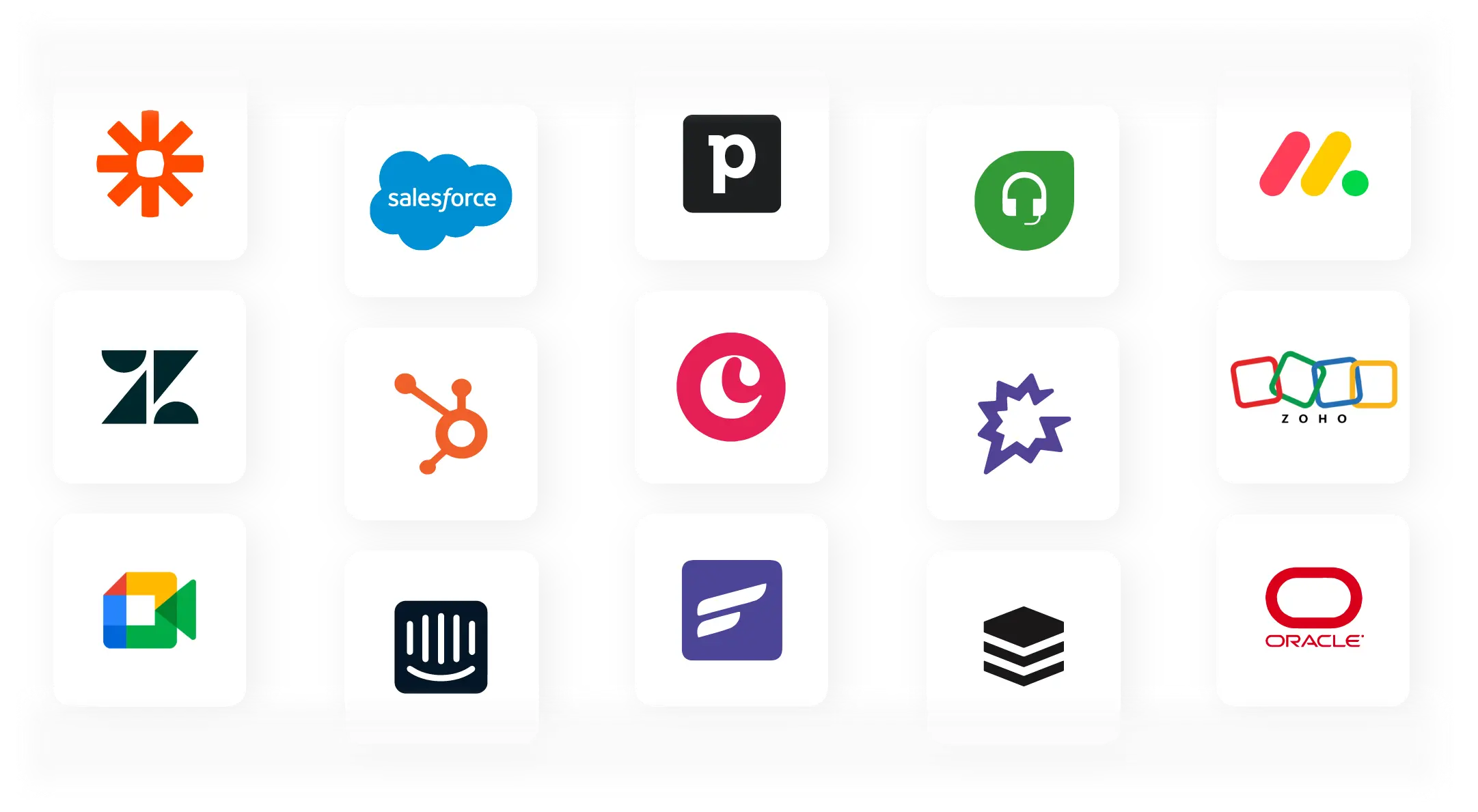
Integration
VoIP systems offer seamless integration with third-party applications, allowing businesses to enhance communication and streamline workflow. Through APIs (Application Programming Interfaces) and integrations, VoIP platforms can connect with various software solutions, including customer relationship management (CRM) systems, helpdesk software, and productivity tools.
This integration allows automatic call logging, click-to-dial functionality within CRM interfaces, screen pops displaying caller information, and synchronized contact databases, facilitating more efficient customer interactions and streamlined communication workflows.
Challenges Of VoIP
Although VoIP offers numerous benefits, there are some challenges that you should keep in mind
Dependency on Internet
VoIP relies on a stable Internet connection, making it susceptible to latency, jitter, and packet loss, which can reduce call quality.
Security concerns
VoIP calls are vulnerable to threats like eavesdropping, call spoofing, and malware attacks, necessitating robust security measures to protect sensitive information.
Emergency Calls
Unlike traditional landline phones, VoIP may not always provide accurate location information to emergency services, posing challenges in emergencies.
How Is VoIP Different From Traditional Landline?
VoIP, or Voice over Internet Protocol, is also known as IP telephony or Internet calling. This technology lets you make and receive phone calls using your internet connection rather than traditional landlines. It is not a new technology, dating back to 1970 when the US Defense Department first used it. However, recent advancements and improvements have made it a standard means of communication for businesses looking for a future-proof communication system.
VoIP offers a cost-effective and hassle-free communication solution for businesses of all types and sizes. This phone system can save you various costs associated with traditional phone systems.

How To Set Up VoIP?
It is simple to set up a VoIP phone system. You only need a device such as a smartphone, laptop, tablet, or desktop computer and a reliable internet connection. Many VoIP providers are present in the UK, offering different features and pricing.
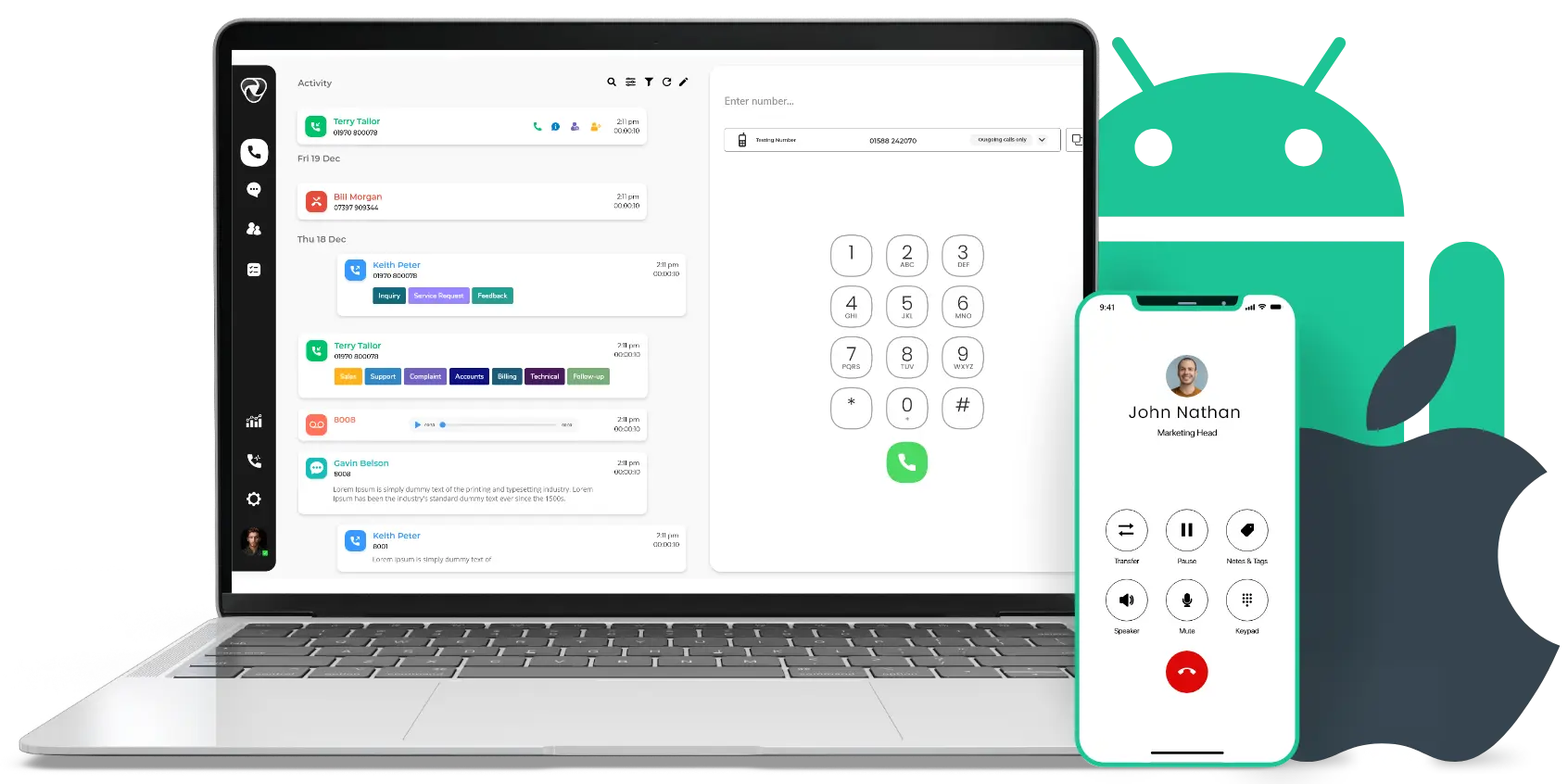
What Are the Applications Of VoIP?
VoIP has become a great alternative to traditional phone lines. It is usually used to make audio and video calls. Following are some most common applications of VoIP.
Business Communication
VoIP is widely adopted for internal and external communication in the business world, offering cost savings, enhanced features, and improved collaboration.
Call Centers
VoIP technology is extensively used in call centers due to its cost-effectiveness, scalability, and advanced features, such as call routing and interactive voice response.
Remote Work
With the rise of remote work, VoIP has become indispensable for facilitating communication among distributed teams, enabling seamless collaboration regardless of location.
Personal Communication
VoIP applications are popular among individuals for making voice and video calls, especially for international communication, where traditional phone services may be costly.
Conclusion
Voice over Internet Protocol (VoIP) has emerged as a game-changing technology in communication, offering numerous benefits for individuals and businesses. Its cost-effectiveness, feature-rich nature, flexibility, scalability, and integration capabilities make it a compelling choice for modern communication needs. Despite facing challenges such as internet dependency, security concerns, and emergency call limitations, VoIP continues to reshape how we connect and collaborate. With its wide range of applications, from business communication to personal use, VoIP is poised to remain at the forefront of the communication landscape for years. Whether considering adopting VoIP for your business or exploring its potential for personal communication, embracing this advanced technology promises to unlock new levels of efficiency, productivity, and connectivity.
FAQs
Yes, VoIP is more reliable than traditional telephony. You only need to have a high-quality and stable internet connection. The quality of traditional telephony is compromised by damage to phone lines and many other elements, but it is not the case with VoIP.
There are no specific technical requirements to get VoIP for your business. You can switch if you have a reliable internet connection on your premises. It is better to connect with high bandwidth and low latency because it helps make call quality higher.
Most VoIP providers allow you to keep your current number even when you switch. One of the major advantages of VoIP is that you can make and receive calls using the same from multiple locations.
A VoIP call is not much different from a normal call. You do not need to do anything special to make a phone call. If you are using physical VoIP phones to make calls, a caller may not even know that the call is made through VoIP phone.